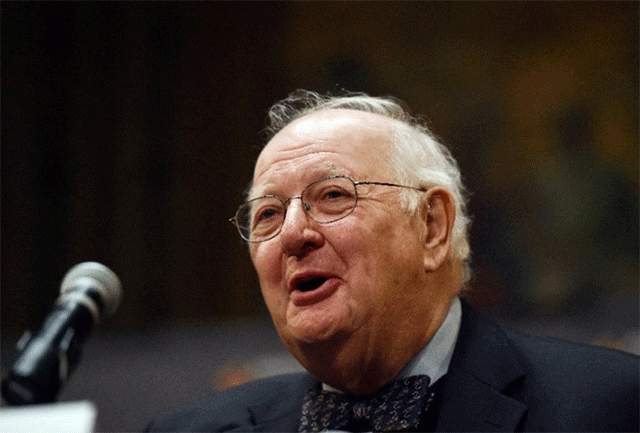Nobel Prize in Economics: Deaton and his works
Working from households, he would re-imagine macro-economics

Working from households, he would reimagine macro-economics. PHOTO: AFP
Dr Deaton is a Professor of Economics and International Affairs at Princeton University. Deaton has enjoyed a reputation of being a brilliant economist — excelling in both theoretical as well as empirical aspects of the subject.
This was in fact acknowledged by the Nobel committee itself when they said that Deaton’s work covers a wide spectrum, “from the deepest implications of theory to the grittiest detail of measurement”. Having completed his doctorate from Cambridge University, Dr Deaton has been greatly influenced by the late Dr Richard Stone, also from the same institution.
Dr Stone won a Nobel Prize in 1984 for his work on national income accounting which is used by every single country for empirical economic analysis.
Analysing consumption
Dr. Deaton is best known for his work on consumption theory. Consumption is critical to the design of economic policy that enhances welfare and reduces poverty.
It is in Deaton’s 1980 book “Economics and Consumer Behavior” written with John Muellbauer who is now a professor at Oxford University that he demonstrated his “Almost Ideal Demand System” which describes how households distribute their consumption over various goods in a given period of time, given their total expenditures in the period.
It remains the standard tool for studying the impact of economic policy, for the construction of price indexes and comparing living standards across different countries. The book is a standard text taught in many universities around the world.
Deaton took his research on consumption forward to explain aggregate phenomena such as capital formation and business cycles. His research has thus emphasised that the study of the macro economy can only be meaningful if one starts with the basic unit, households, and carefully aggregates the numbers for the entire economy.
A more recent book by him, ‘The Great Escape: Health, Wealth and the Origins of Inequality’ published in 2013 is a take on how beginning some 250 years ago, some parts of the world witnessed sustained progress which opened up gaps and set the stage for today’s unequal world.
Deaton uses history to analyse the patterns of health and wealth of nations that have developed over time and gives recommendations on how to help those who are in the poorest sections of the society.
Deaton and Development Economics
One of Deaton’s most influential works is the use of household surveys which many economists had previously thought of as unreliable. He put emphasis on the role of detailed questionnaires in measuring poverty and welfare rather than reliance on GDP statistics. These surveys are being used by many countries around the world including Pakistan.
He wrote a book, “The Analysis of Household Surveys: A Micro-econometric Approach to Development Policy”, which presents the construction of household surveys and statistical and econometric methods that are useful in bridging the gap between data and policy.
Having worked on developing countries for almost 35 years, he has deep knowledge of some of the challenges these countries face. He has written extensively on poverty and health specifically with reference to India.
He has used statistical techniques and carefully applied economic theory to the assessment of living standards and other related ideas such as the causes of malnutrition and the extent of gender discrimination in poor families. His work has just not benefited students but his long association with the World Bank has helped the latter to measure and assess poverty.
The writer is an economist and ex-central banker
Published in The Express Tribune, October 19th, 2015.
Like Business on Facebook, follow @TribuneBiz on Twitter to stay informed and join in the conversation.



















COMMENTS
Comments are moderated and generally will be posted if they are on-topic and not abusive.
For more information, please see our Comments FAQ